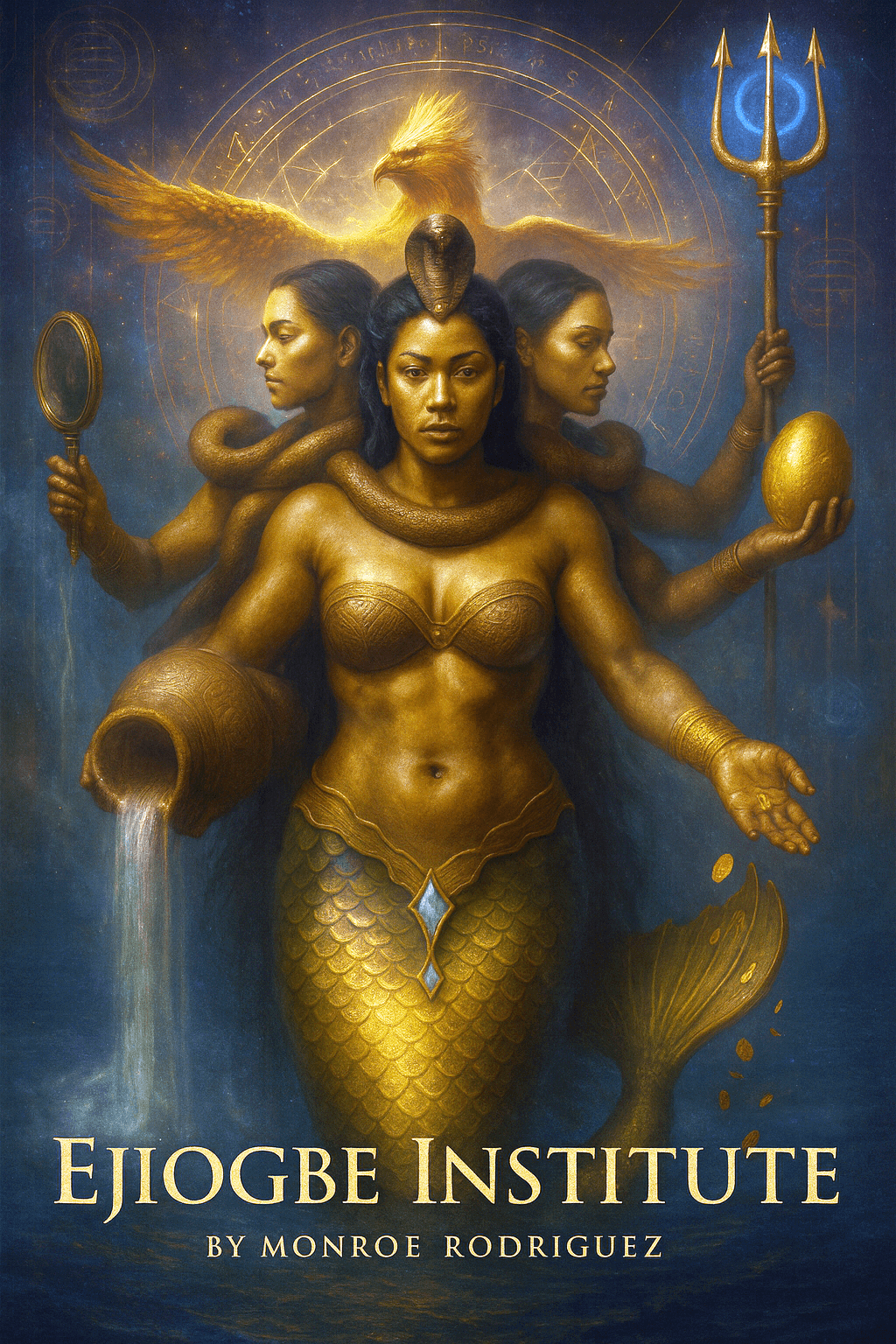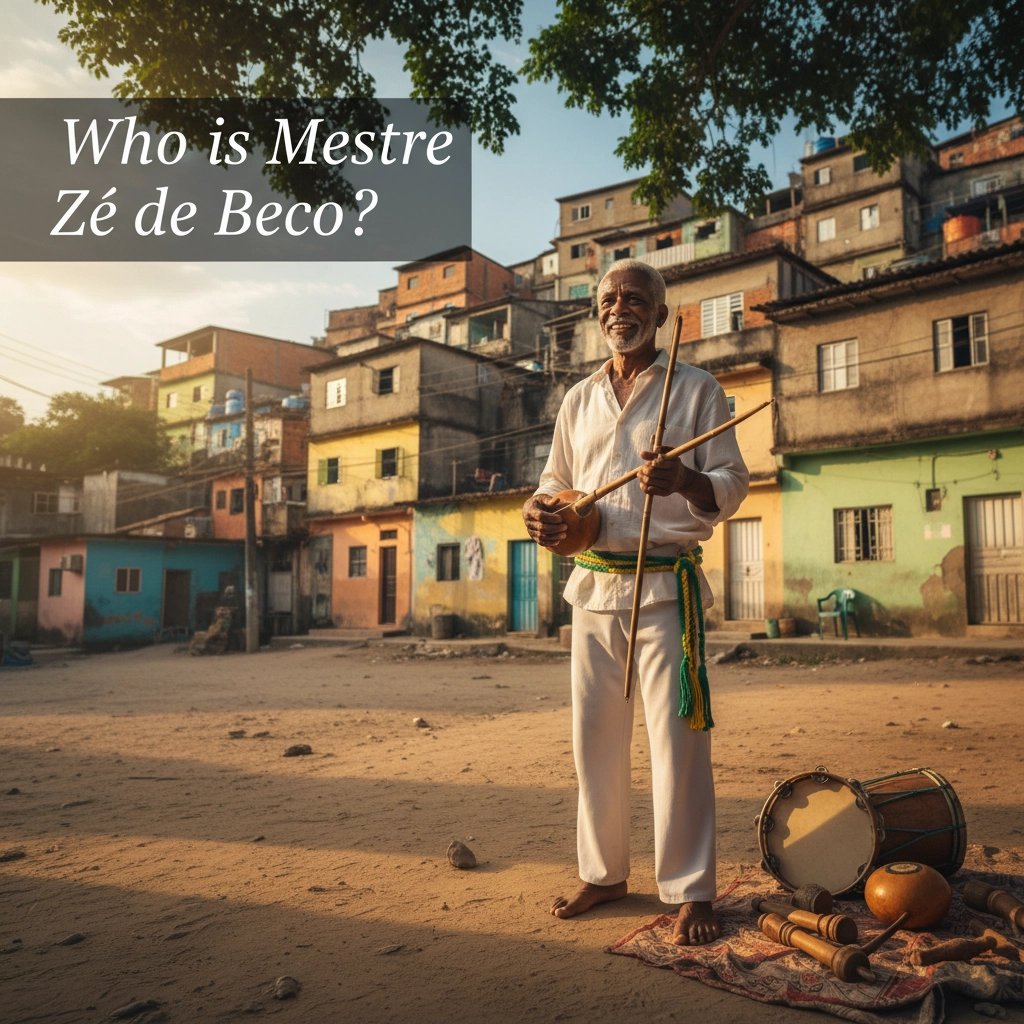Have you ever wondered about the spiritual guardians who watch over Brazil's forgotten corners? In the labyrinthine alleys of Brazilian cities, where shadows dance with secrets and every turn tells a story, there walks a master whose very name speaks to the soul of street wisdom: Mestre Zé de Beco.
His name alone paints a picture: Zé, the beloved diminutive of José that echoes through every Brazilian neighborhood, coupled with "de Beco": of the alley. This isn't just a title; it's a spiritual geography that maps the intersection between the sacred and the street, between ancient wisdom and urban survival.
The Master of Hidden Pathways

Mestre Zé de Beco stands as one of the revered masters within Brazil's rich tapestry of Afro-Brazilian spiritual traditions, particularly within the sacred practice of Jurema. But who is this figure who commands such respect in the spiritual communities of Brazil's Northeast?
Unlike the grand boulevards where power parades in daylight, Mestre Zé de Beco's domain is the beco: the alley, the narrow passage, the overlooked spaces where real life unfolds. These are the arteries of Brazilian urban life where vendors call out their wares, children play between weathered walls, and neighbors share both gossip and genuine care.
In Brazilian spiritual cosmology, the choice of "beco" as part of his spiritual identity isn't accidental. Alleys represent transition spaces: not quite public streets, not quite private courtyards. They're liminal zones where the ordinary world brushes against the extraordinary, where spirits move freely between dimensions, and where those who know how to look can find wisdom hiding in plain sight.
The Living Tradition of Jurema
To understand Mestre Zé de Beco, we must first appreciate the spiritual tradition that honors him. Jurema represents one of Brazil's most authentic expressions of indigenous and African spiritual synthesis, born from the meeting of native Brazilian shamanic practices with African religious wisdom brought by enslaved peoples.
Within this tradition, masters like Zé de Beco aren't distant deities dwelling in celestial realms. They're accessible guides who understand the struggles of daily life because they've walked the same paths. They speak the language of the people: sometimes rough, always honest, eternally compassionate.
The Jurema tradition recognizes that divinity doesn't only reside in temples and cathedrals. It pulses through the veins of the city, flows through neighborhood conversations, and reveals itself in moments of genuine human connection. Mestre Zé de Beco embodies this street-level spirituality.
Songs That Summon the Sacred
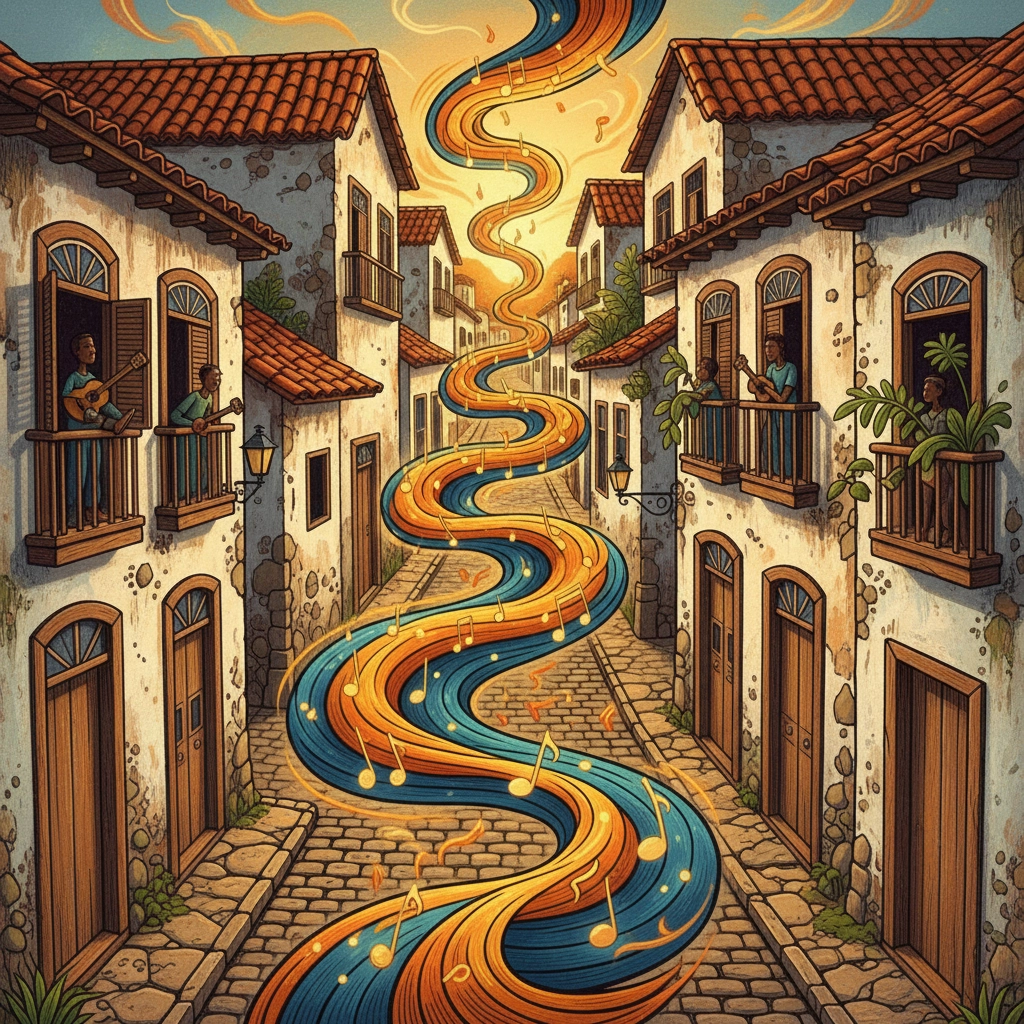
One of the most beautiful aspects of Jurema practice lies in its pontos: sacred songs that serve as bridges between the physical and spiritual worlds. These aren't mere hymns; they're invocations that carry the power to summon, honor, and commune with the masters.
Mestre Zé de Beco has his own distinctive pontos, including the evocative verse: "Sr. Zé vira o beco. E no beco virou. Na virada do beco" (Mr. Zé turns the alley. And in the alley he turned. At the turning of the alley).
Listen to the rhythm of these words, feel how they capture movement, transformation, and the master's intimate relationship with urban spaces. The repetition of "vira" (turns) suggests not just physical movement but spiritual transformation: the ability to change perspective, to find new paths, to navigate life's complexities.
This particular ponto reveals something profound about Mestre Zé de Beco's spiritual function. He's the master of transitions, the guide who helps people navigate the turning points in their lives. When you're at a crossroads, literally or figuratively: he's the spiritual presence who whispers which way to turn.
The Wisdom of Street Life
What makes Mestre Zé de Beco particularly compelling is how he represents the sanctification of ordinary urban experience. Brazilian cities can be challenging landscapes: places where economic hardship, social inequality, and daily survival create immense pressure on families and individuals.
Yet within this challenging environment, Mestre Zé de Beco finds the sacred. He reminds us that wisdom doesn't require formal education, that strength can emerge from struggle, and that community forms naturally when people face adversity together.
His connection to the beco: the alley: speaks to his role as protector of those who live on society's margins. Alleys are where the working class makes their homes, where small businesses operate on thin margins, where children learn street smarts alongside book learning. These spaces might seem humble to outsiders, but they pulse with authentic life.
A Contemporary Presence
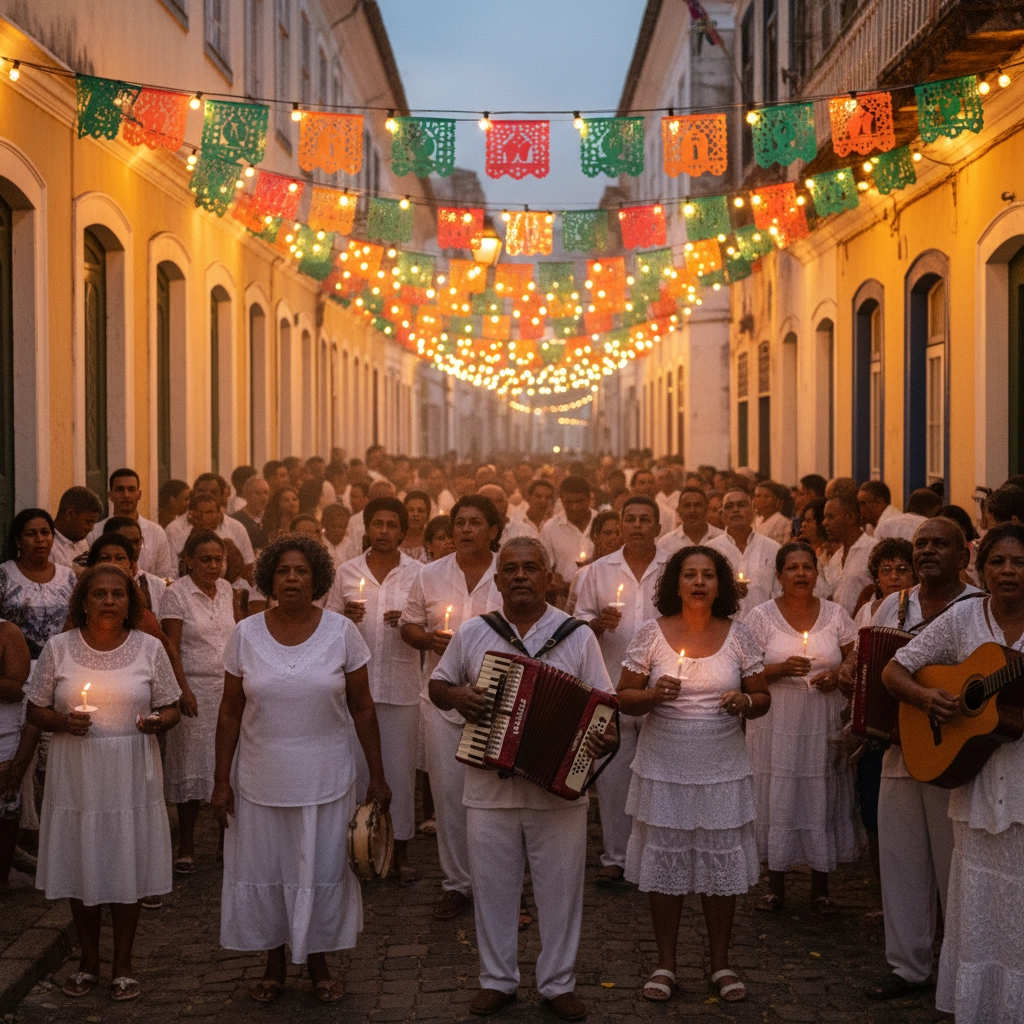
Mestre Zé de Beco isn't merely a historical figure preserved in old songs and stories. He maintains an active presence in contemporary Brazilian spiritual life, participating in festivals, ceremonies, and community gatherings. Records show his participation in events like the 2015 celebration honoring Cigana Carmen, demonstrating that his influence extends across different spiritual traditions and communities.
This contemporary relevance reflects something essential about Afro-Brazilian spirituality: it's not a museum piece but a living, breathing tradition that continues to evolve while maintaining its core principles. Mestre Zé de Beco adapts to modern urban realities while preserving ancient wisdom about community, resilience, and spiritual connection.
In an era when globalization threatens to homogenize spiritual experiences, figures like Mestre Zé de Beco represent the irreplaceable value of localized, culturally-specific spiritual wisdom. He carries the unique flavor of Brazilian urban spirituality: its mixture of African mysticism, indigenous earth-wisdom, and Portuguese Catholic influences, all filtered through the lived experience of city life.
The Master's Teachings
While specific biographical details about Mestre Zé de Beco remain embedded within oral tradition rather than written histories, his teachings emerge clearly through the practices and stories of those who honor him.
He teaches that spirituality must be practical: it must help people navigate real-world challenges. His wisdom speaks to those who work multiple jobs to support their families, who find creative solutions to everyday problems, who build community networks that provide mutual support during difficult times.
Mestre Zé de Beco also emphasizes the importance of knowing your neighborhood: not just the physical geography but the social and spiritual landscape. Who are the elders who carry wisdom? Which corners hold particular energy? How do the rhythms of daily life create opportunities for spiritual connection?
His teachings suggest that spiritual development happens not in isolation but through engagement with community. The alley becomes a metaphor for the interconnected nature of urban life: how individual stories weave together to create collective narratives of survival, growth, and transformation.
Honoring the Master Today
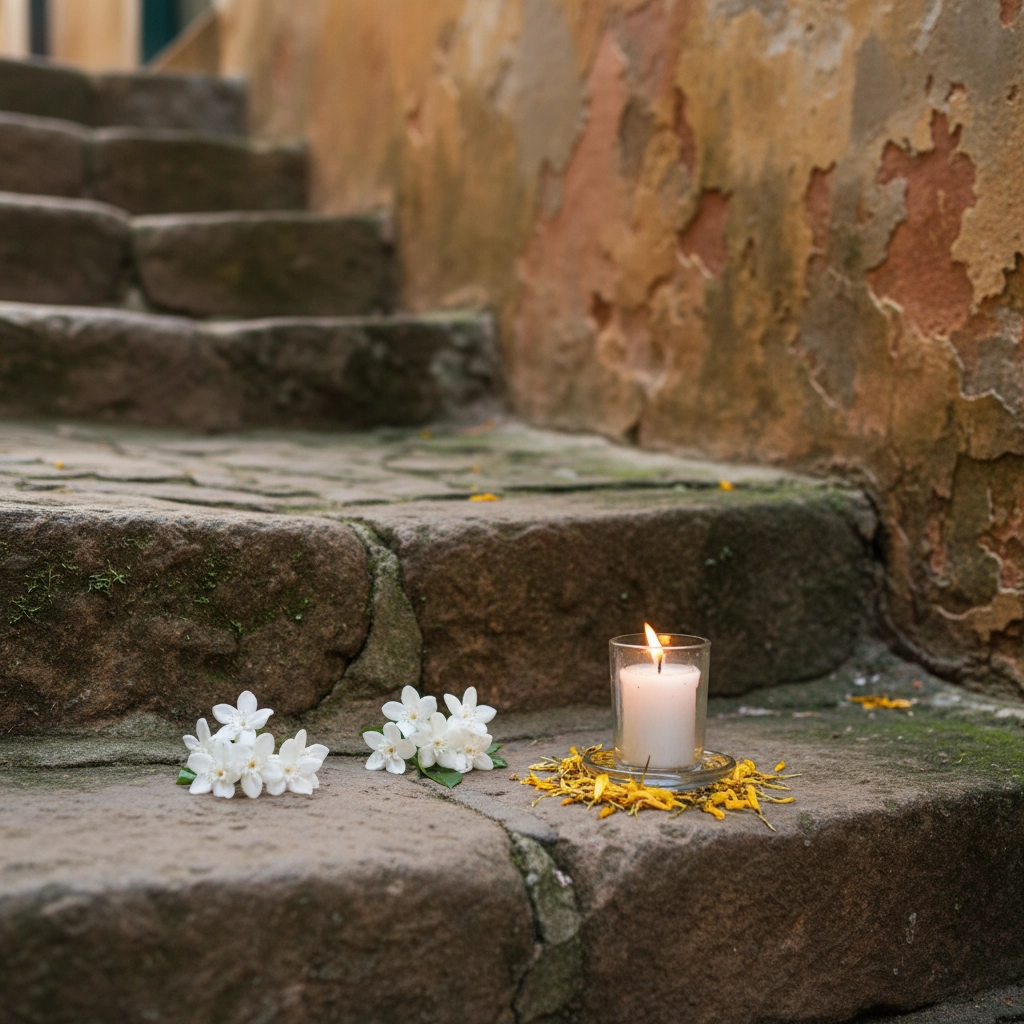
For those drawn to Mestre Zé de Beco's wisdom, honoring him doesn't require elaborate rituals or expensive offerings. His preferences align with his street-level spirituality: simple gestures that acknowledge the sacred in everyday life.
Lighting a candle while walking through your neighborhood, leaving flowers at a corner where community naturally gathers, or simply taking time to appreciate the small businesses and informal networks that make urban life possible: these actions resonate with his energy.
His feast days and celebrations often involve community gatherings where people share food, music, and stories. These events reinforce the social bonds that make neighborhoods more than just collections of buildings: they become places where people genuinely care for one another.
The pontos sung in his honor create moments of collective spiritual experience, where individual voices blend into community expression. In these moments, participants often report feeling a profound sense of belonging: not just to the immediate group but to the larger tapestry of Brazilian spiritual culture.
The Eternal Alley
Mestre Zé de Beco reminds us that spiritual wisdom often emerges from the most unexpected places. Not from mountaintop retreats or pristine temples, but from the alleys where real life unfolds: messy, complicated, beautiful, and utterly human.
His legacy challenges us to recognize the sacred in the overlooked spaces of our own lives. Where are your "becos": the transitional spaces where transformation becomes possible? How might approaching these spaces with spiritual awareness change your relationship to your daily environment?
In a world increasingly divided between digital and physical, global and local, sacred and secular, Mestre Zé de Beco offers a different path: one that finds unity in the specific, the local, the humble places where people gather and life actually happens.
The alley beckons. The master waits. And somewhere in the turning of the corner, wisdom reveals itself to those who know how to look.
